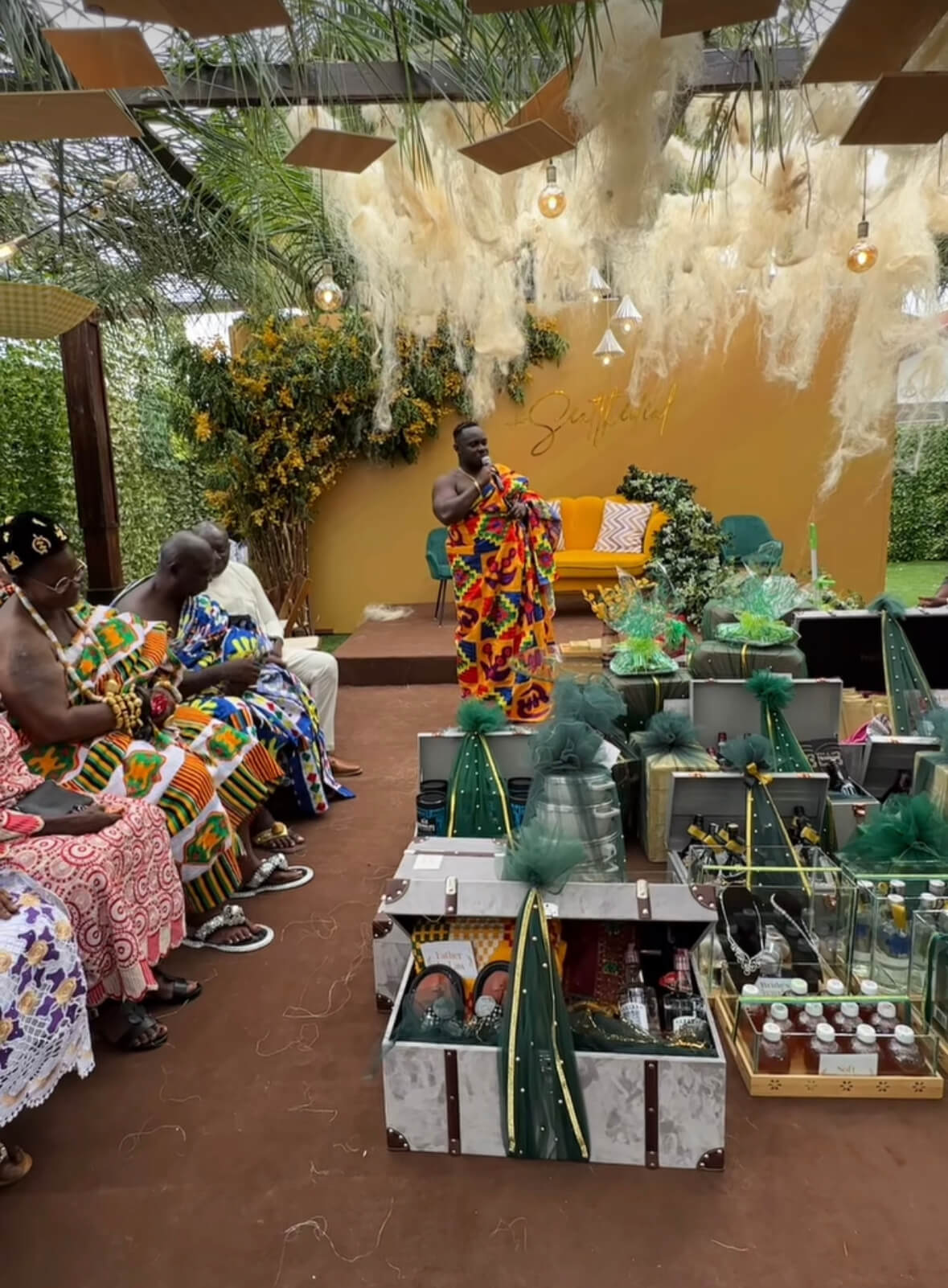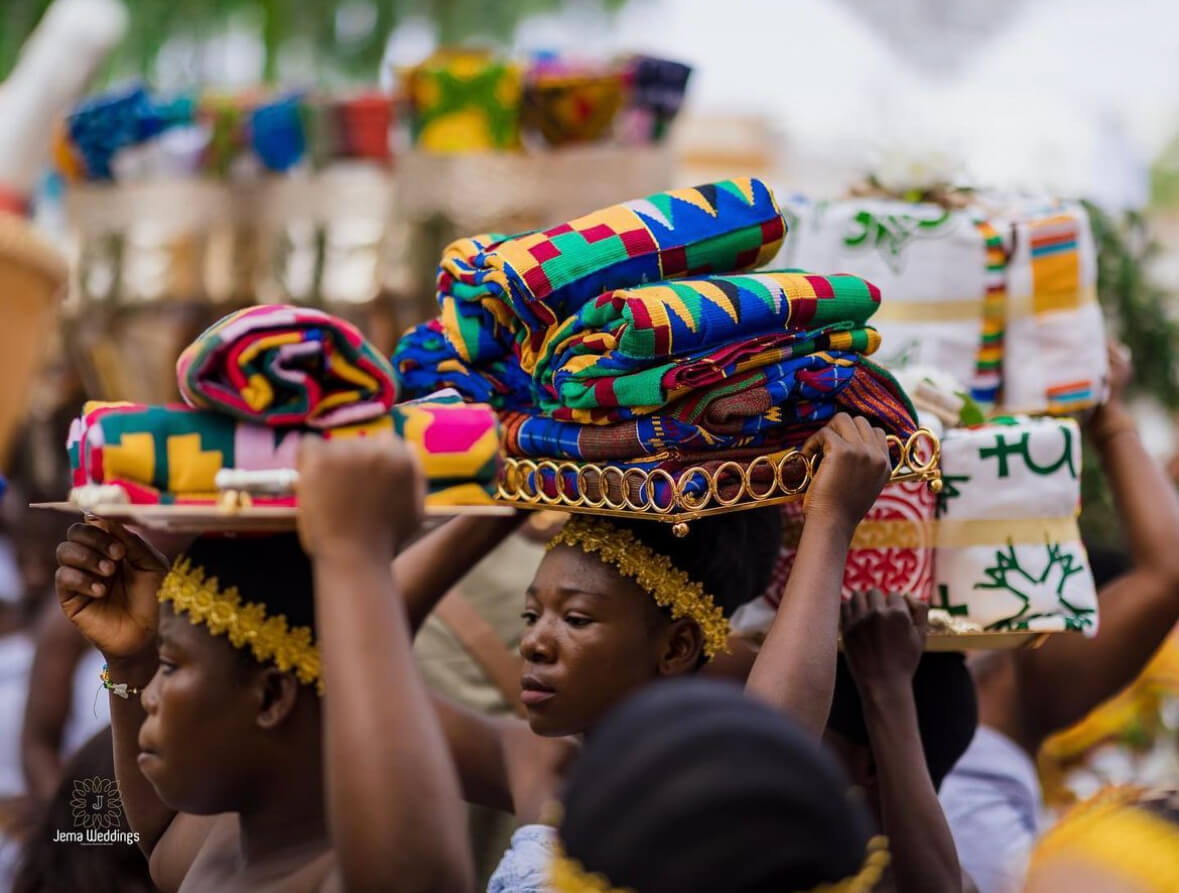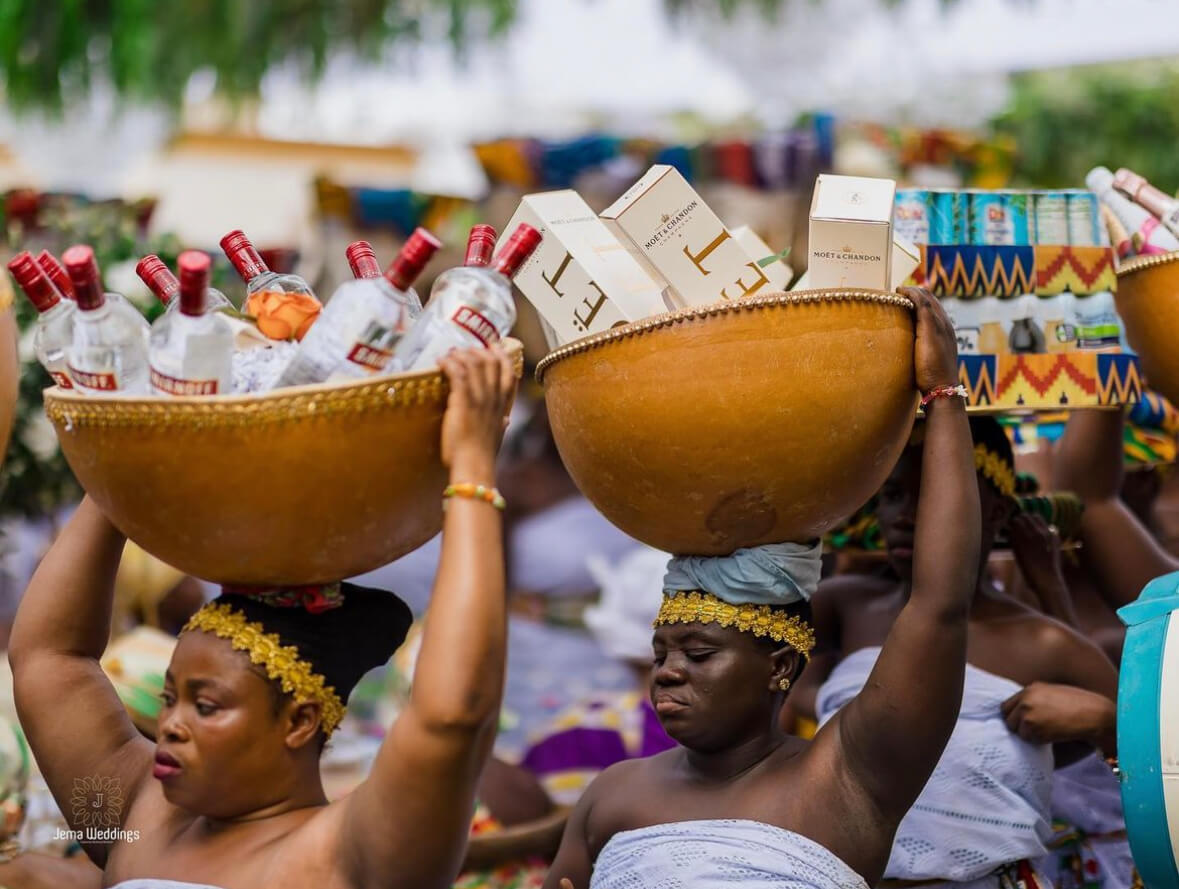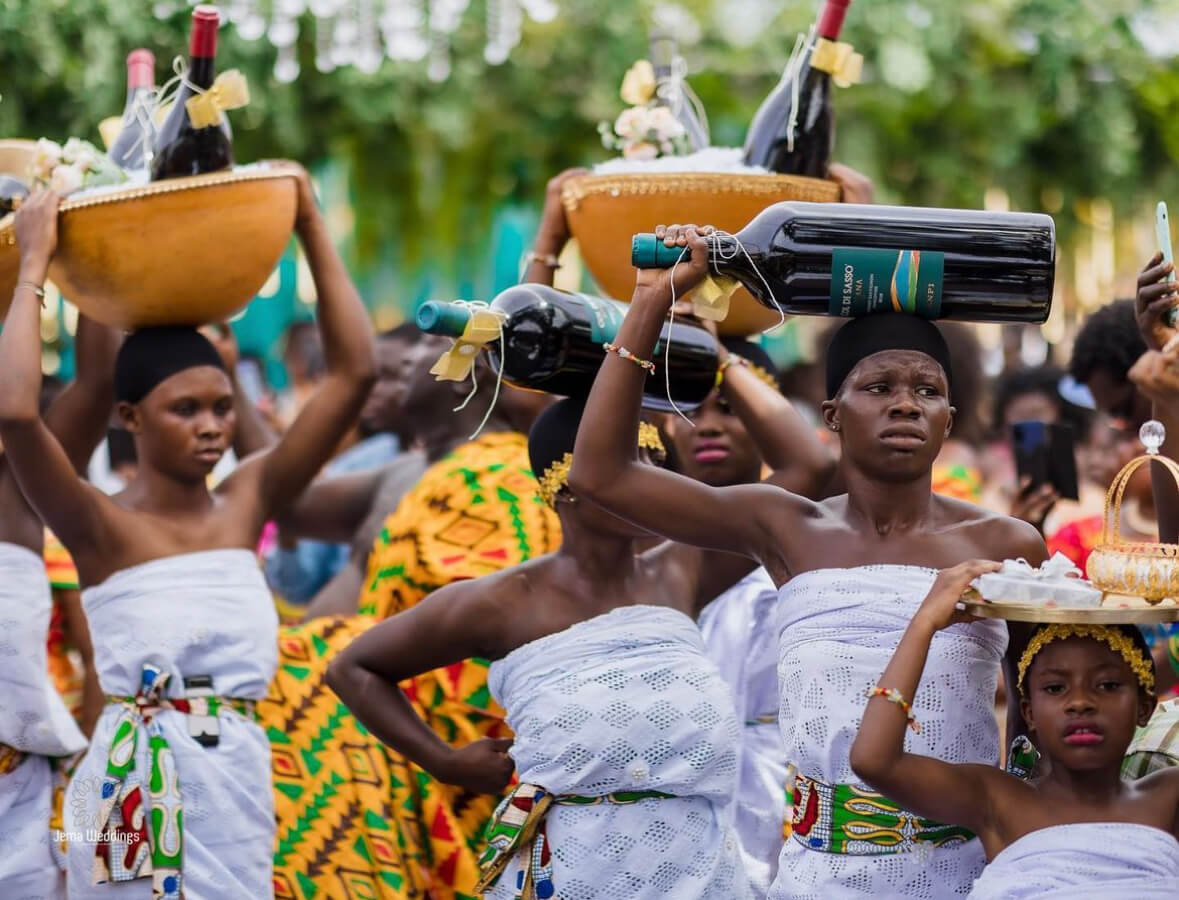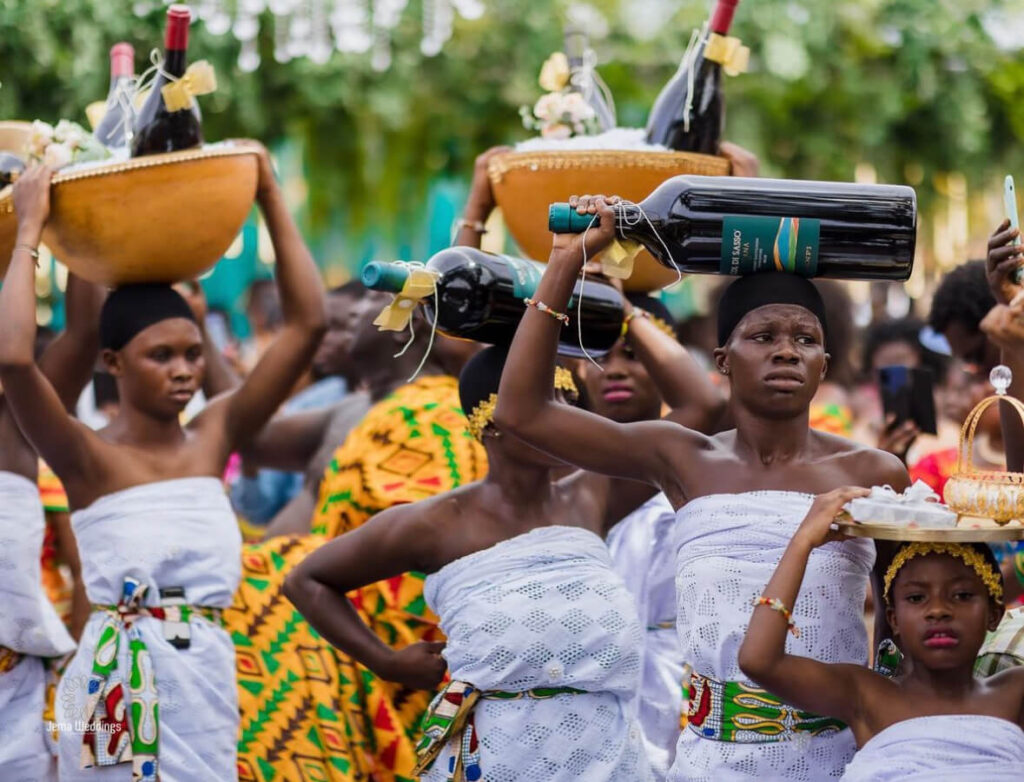
In the heart of West Africa lies Ghana, a nation celebrated for its vibrant cultural heritage and hospitality. Among its diverse ethnic groups, the Akan people hold a distinct place with their captivating traditional marriage ceremonies including the Akan traditional marriage list. With the different types of marriages in Ghana, Kele+ explores details of this traditional marriage list while highlighting the captivating process and rites, shedding light on the rich traditions that make these ceremonies truly exceptional and unique from other marriages across the globe.
The Akan people, known for their intricate art, music, and philosophy, boast a deep-rooted cultural heritage. This heritage is brilliantly displayed in their traditional marriage ceremonies, which serve as a powerful expression of family bonds, community unity, and respect for tradition.
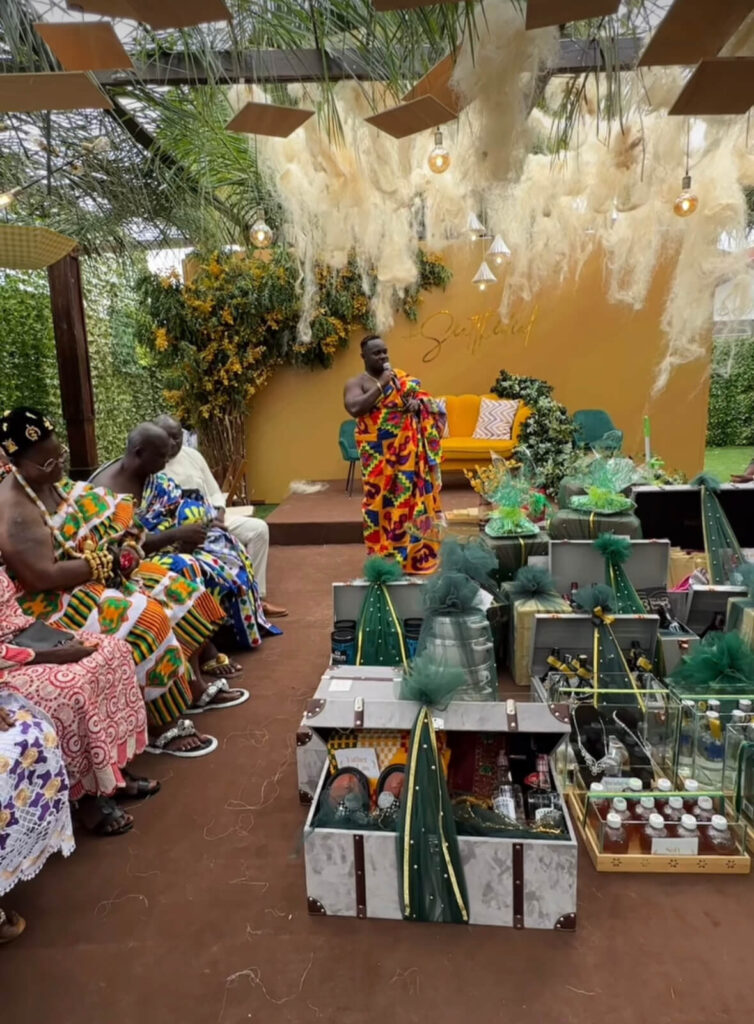
The journey of an Akan traditional marriage commences with the "knocking ceremony." In this practice, representatives from the groom's family, accompanied by gifts, visit the bride's family to formally express the groom's intention to marry. This step allows both families to establish a connection and signifies the beginning of the marriage negotiation process.
Gift-giving is a central aspect of Akan traditional marriages. The groom's family presents a variety of items, including clothes, drinks, and money, to the bride's family. These gifts not only demonstrate the groom's commitment but also showcase his ability to provide for his future wife. The exchange of gifts symbolizes the merging of two families and communities.
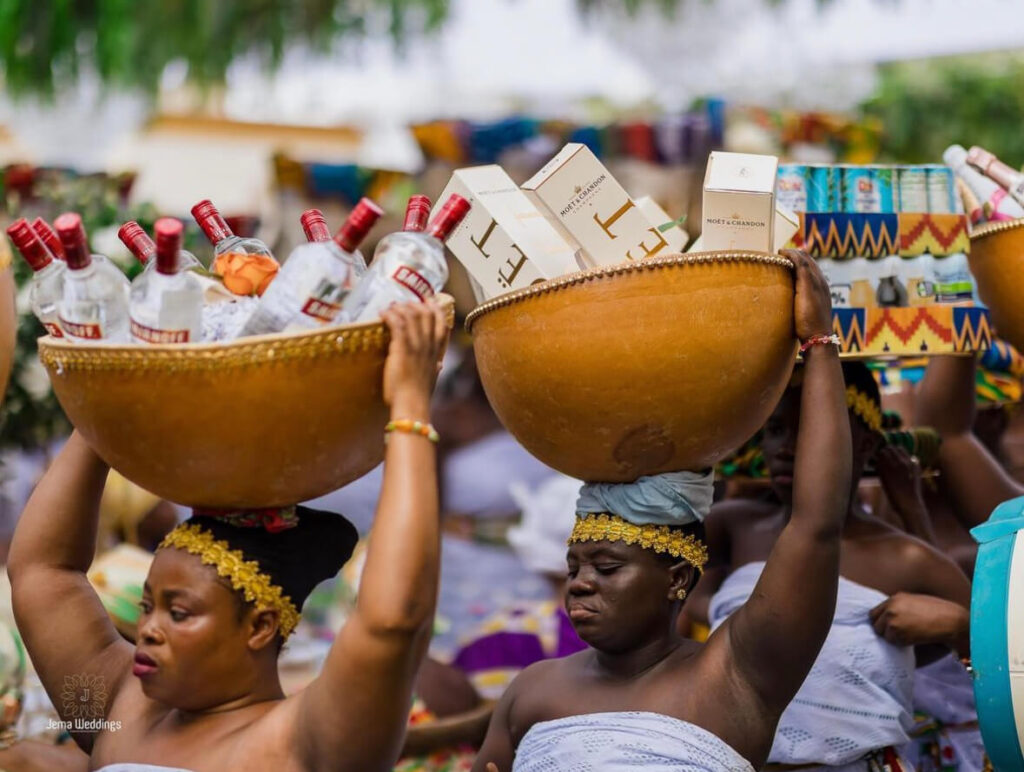
The engagement ceremony is a cornerstone of Akan traditional marriage. It involves a series of activities and prayers, seeking the blessings for the couple's union. The ceremony emphasizes the importance of respect for tradition and the acknowledgement of family heritage while advising the couple on the journey of love ahead.
Dowry payment is a significant part of Akan marriage customs. The groom, accompanied by his family, presents a predetermined amount of money or goods to the bride's family. This symbolic gesture affirms the groom's commitment to providing for his future wife and showcases his respect for her family.
The climax of the Akan traditional marriage is the actual wedding ceremony. This event is marked by colorful cultural displays, vibrant attire, and joyous celebrations. The bride and groom, adorned in traditional clothing, exchange vows, accompanied by the recitation of cultural proverbs and blessings.
No Akan celebration is complete without the captivating rhythms of drumming and dancing. These lively performances add energy and excitement to the marriage festivities, uniting families and communities in jubilation.
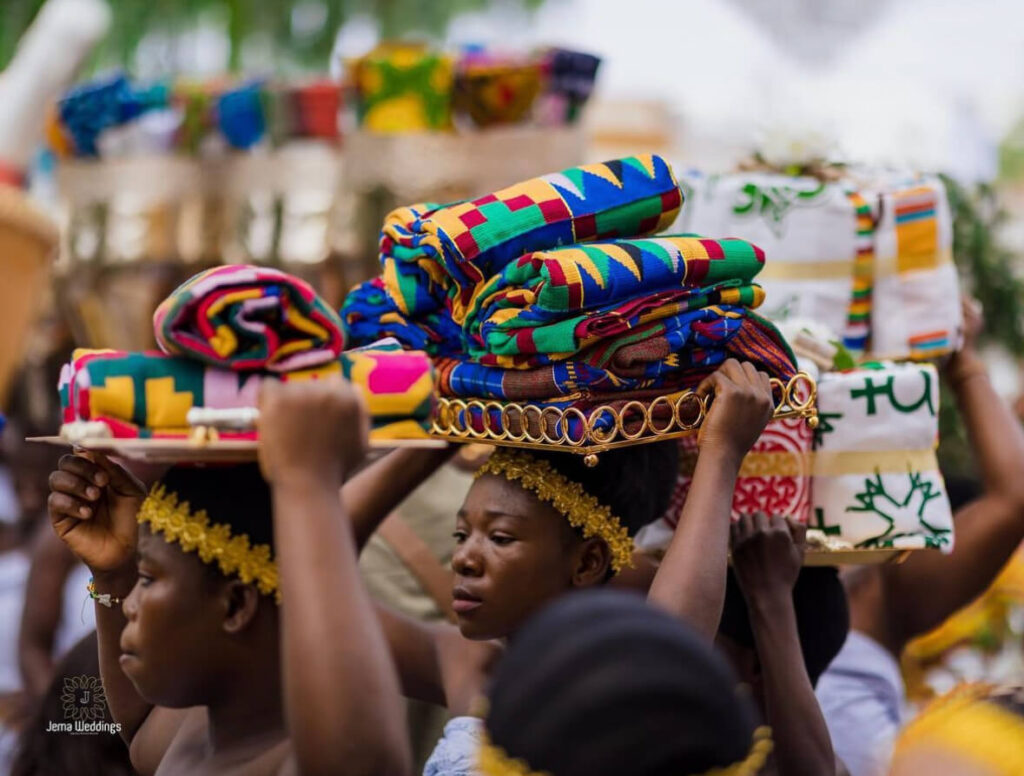
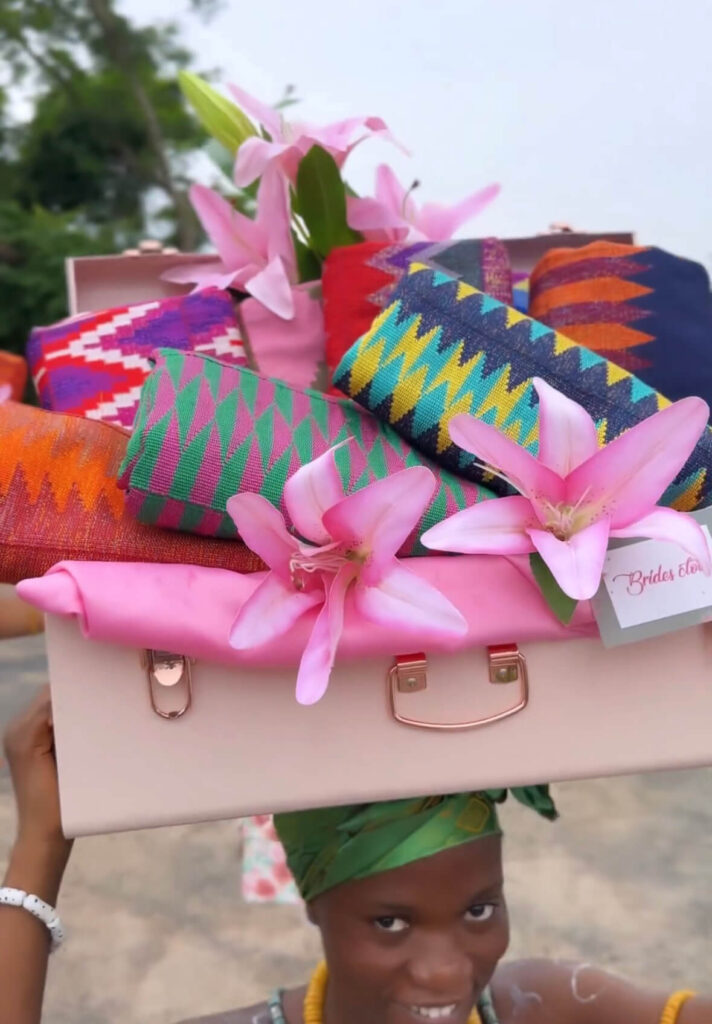
The items in the list above may differ depending on the families involved. Some families may include things of sentimental value to them and the bride-to-be. Others may take off some of the items or reduce the amount of money involved depending on the financial capabilities of the young couple-to-be. However, some items like the Korkorkor, ring and bible may be non-negotiable on the Akan traditional marriage list.
